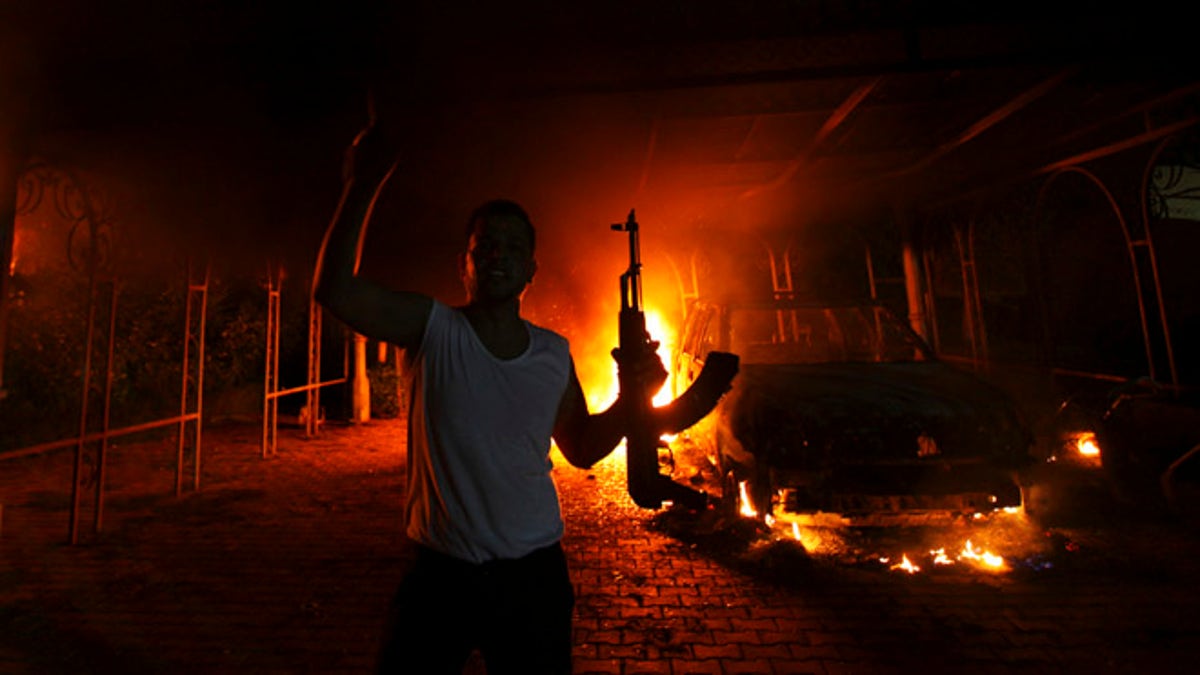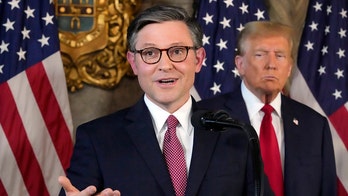
Sept. 11, 2012: A protester reacts as the U.S. Consulate in Benghazi is seen in flames. (Reuters)
Some of the main operatives in the Benghazi terror attack were part of the Al Qaeda network and likely sought to communicate with Al Qaeda leadership in Pakistan leading up to and after the strike that killed four Americans, according to the Republican chairman of the House Intelligence Committee.
“I can tell you we know the participants of the event were clearly Al Qaeda affiliates, had strong interest and desire to communicate with Al Qaeda core and others, in the process -- we believe before and after the event,” Rep. Mike Rogers, R-Mich., who has access to classified information and receives regular briefings, told Fox News in an exclusive interview.
Last month, Fox News was first to report that at least two of the key suspects in the Benghazi terror attack were at one point working with Al Qaeda senior leadership. Sources familiar with the investigation said one suspect was believed to be a courier for the network, and the other a bodyguard in Afghanistan prior to the 2001 terror attacks.
The direct ties to Al Qaeda senior leadership undercut early characterizations by the Obama administration that the attackers in Benghazi were isolated “extremists" with no organizational structure or affiliation. After the attack, the former bodyguard -- Faraj al Chalabi -- traveled to Pakistan, where he was detained, returned to Libya and eventually released before the FBI was granted access.
A former Guantanamo detainee, Sufian bin Qumu, who is suspected of training some of the operatives who took part in the assault, was in Benghazi on Sept. 11, 2012, according to a knowledgeable source. Fox News is told the intelligence community is trying to determine whether he played any role directing the attack and whether he was physically on or near the consulate grounds.
“I will tell you this, by witness testimony and a year and a half of interviewing everyone that was on the ground by the way, either by an FBI investigator or the committee: It was very clear to the individuals on the ground that this was an Al Qaeda-led event. And they had pretty fairly descriptive events early on that lead those folks on the ground, doing the fighting, to the conclusion that this was a pre-planned, organized terrorist event,” Rogers said.
“Not a video, that whole part was debunked time and time again, which just leads to questions of why the administration hung with that narrative for so long when all the folks who participated on the ground saw something different.”
Asked what might explain the initial narrative that an anti-Islam film triggered demonstrations that led to the attack, Rogers did not answer directly but said all evidence points to the State Department, whose leadership skirted the security requirements for the Benghazi mission.
“We think we can fairly sense what was going on here and I will tell you, the answers, I think, are going to lie within the State Department and the decision-making in the State Department,” he said. “Lots of questions to be answered there.”




